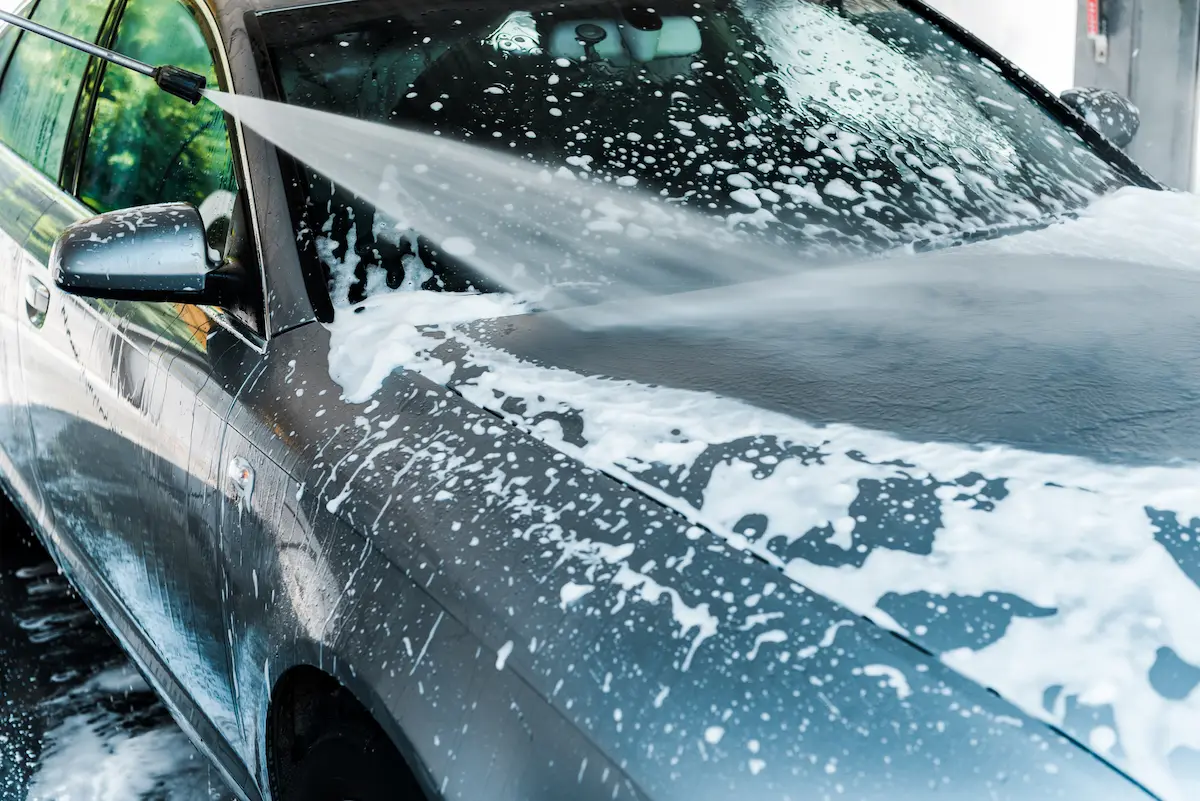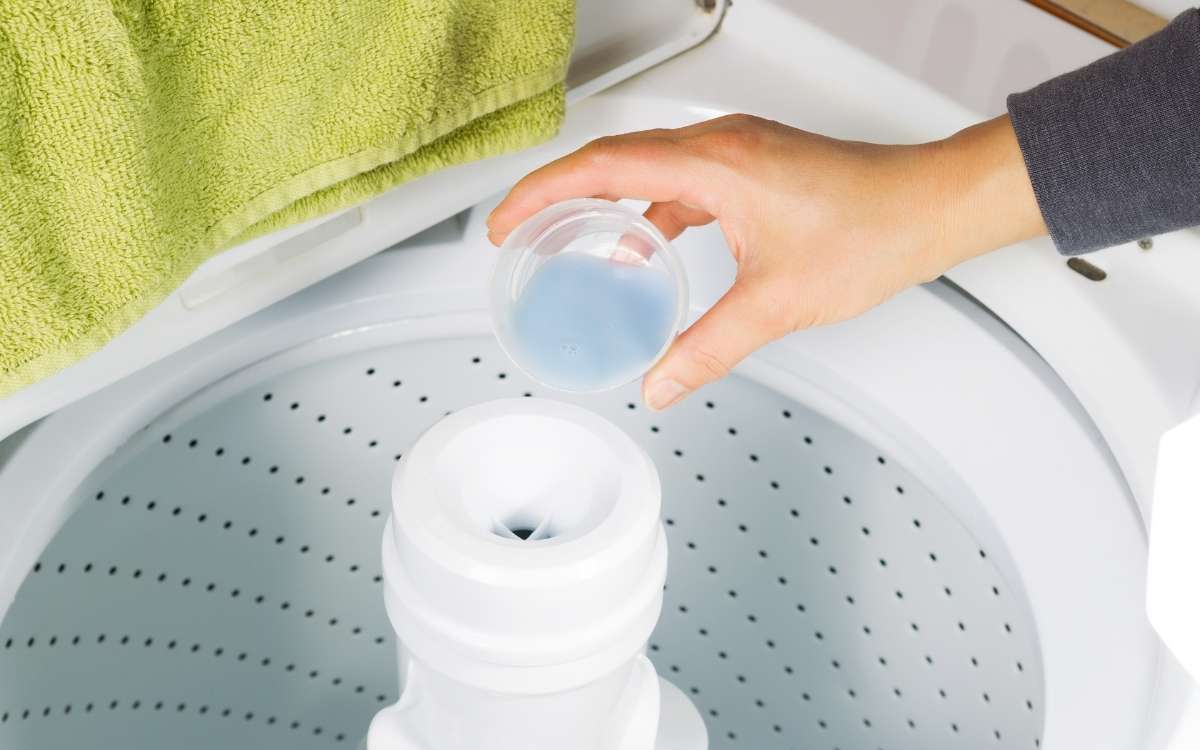It’s a Saturday morning and you’re staring down a mountain of dirty dishes. You’re about to start the chore when you realize that your floor could use a good cleaning. Why not kill two birds with one stone? That bottle of dish soap right next to the sink might be the ultimate multi-tasking cleaning solution. But before you grab that bottle and get to work, hold on. Can you really use dish soap to mop the floor?

Image: livingtheoutdoorlife.com
The simple answer is that yes, in many cases, you can use dish soap to mop your floor. It might sound counterintuitive, but it’s a cleaning hack that has been around for ages! However, before you grab that bottle of dish soap, it’s important to understand how to use it safely and effectively.
Dish Soap as a Floor Cleaner: The Pros and Cons
Dish soap was originally designed to break down grease and food particles, making it an effective cleaning agent on floors, too. This cleaning solution excels at tackling sticky messes, grime, and even some sticky spills that water alone won’t budge.
While dish soap readily cuts through grease, it can leave slippery residue on floor surfaces. This poses a safety hazard, particularly if you have small children or pets running around. It’s important to use dish soap sparingly and rinse the floor thoroughly afterward, allowing it to dry completely. An equally important factor to consider is the type of floor you’re cleaning. While a few drops of dish soap can work on tile floors, it may not be the best choice for wooden floors or delicate surfaces.
Why Use Dish Soap for Cleaning Your Floors?
Dish soap’s grease and grime-fighting properties extend beyond kitchen sinks. Its sudsy power excels at removing oily messes, dirt, and dust from your floor surfaces. It’s a particularly effective cleaning agent for tile and linoleum floors, as its concentrated formula can remove stubborn stains without harsh chemicals.
Dish soap’s ability to cut through oily messes has made it a popular alternative to harsh floor cleaners. Many people find it appealing due to its environmental friendliness. Dish soap is biodegradable and usually less harsh on the skin than conventional floor cleaners.
Another factor that makes dish soap an attractive cleaning option is its overall cost-effectiveness. Simply put, it’s relatively inexpensive compared to specialized floor cleaners.
The Dos and Don’ts of Using Dish Soap to Mop
While dish soap can be a viable cleaning option for floors, its use must be approached with caution. The type of floor surface and the type of dish soap are crucial factors.
For example, avoid using dish soap on wood floors. Wood floors are more susceptible to water damage, and dish soap can strip away protective finishes over time. If you must clean your wood floors with dish soap, use a very diluted mixture and work quickly, rinsing thoroughly.
When it comes to dish soap, less is definitely more! Only a few drops of dish soap diluted in a bucket of warm water make for an effective cleaning solution. Use a clean mop or sponge to spread the solution evenly across the floor surface. Avoid using dish soap on floors that are delicate or easily scratched.
Remember to rinse your floor thoroughly after cleaning! This will remove any soap residue and prevent slipping. Allow the floor to dry completely, preventing moisture from seeping into the floorboards.

Image: houselovelyhome.com
Tips and Expert Advice
Use a soft-bristled brush to scrub stubborn stains before applying the dish soap solution. This pre-cleaning step will help the dish soap effectively remove the stain.
Consider adding a cup of white vinegar to your dish soap solution. The combination of vinegar and dish soap enhances cleaning power, but it can also leave a distinct vinegar smell. Use this mixture with caution on porous surfaces.
Always test the dish soap solution on an inconspicuous area of your floor before applying it to the entire surface. This will help you prevent any unwanted discoloration or damage to your flooring.
FAQs
Q: Can I use dish soap on my hardwood floors?
A: While it’s not recommended, you can use a very diluted solution of dish soap on hardwood floors. However, it’s important to always work quickly and rinse thoroughly. Always test the solution on an inconspicuous area first.
Q: Can I use dish soap to clean my bathroom floors?
A: Yes, dish soap can work on your bathroom floors. Simply dilute a few drops of dish soap in a bucket of warm water, mop the floor, and rinse thoroughly. Remember to dry the floor completely.
Q: What dish soap is best for cleaning floors?
A: Any type of dish soap will work for cleaning floors. However, it’s best to avoid dish soap containing dyes or fragrances, as these can leave stains or streaks on your floors.
Q: Is using dish soap to clean my floors harmful to the environment?
A: Most dish soaps are biodegradable and relatively safe for the environment. However, it’s important to choose a dish soap that is phosphate-free and free of harsh chemicals.
Can You Use Dish Soap To Mop The Floor
Conclusion
Using dish soap to mop your floors can be an effective and cost-effective method of cleaning, but it’s important to use this approach with caution. Always consider the type of flooring, the type of stain, and whether the dish soap is appropriate for the cleaning project.
And remember, always test a small area first to ensure the dish soap solution does not damage your floor. Do you use dish soap to clean your floors? Tell us about your experience!






